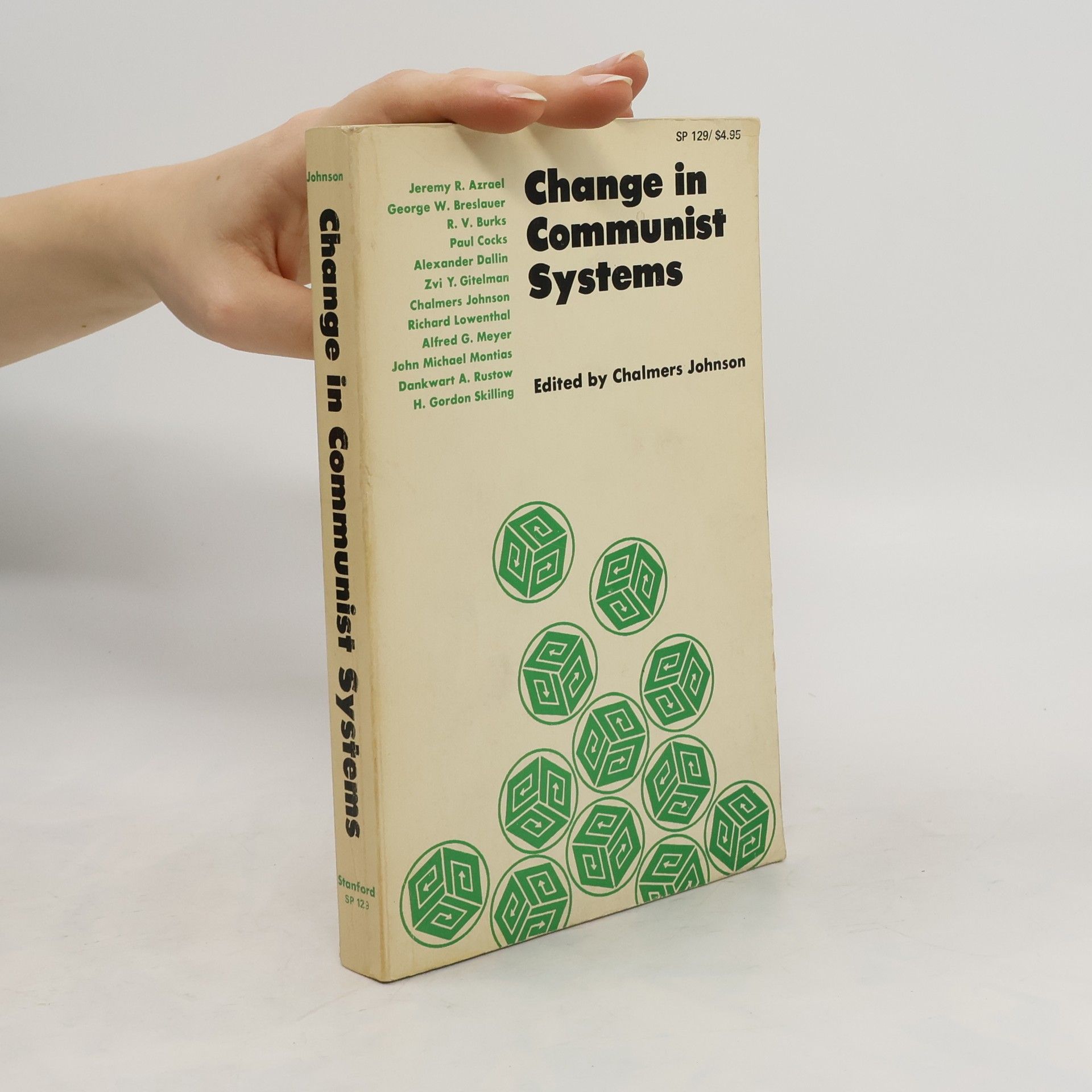The author of the bestselling Blowback Trilogy reflects on America's waning power in a masterful collection of essays In his prophetic book Blowback, published before 9/11, Chalmers Johnson warned that our secret operations in Iraq and elsewhere around the globe would exact a price at home. Now, in a brilliant series of essays written over the last three years, Johnson measures that price and the resulting dangers America faces. Our reliance on Pentagon economics, a global empire of bases, and war without end is, he declares, nothing short of "a suicide option." Dismantling the Empire explores the subjects for which Johnson is now famous, from the origins of blowback to Barack Obama's Afghanistan conundrum, including our inept spies, our bad behavior in other countries, our ill-fought wars, and our capitulation to a military that has taken ever more control of the federal budget. There is, he proposes, only one way out: President Obama must begin to dismantle the empire before the Pentagon dismantles the American Dream. If we do not learn from the fates of past empires, he suggests, our decline and fall are foreordained. This is Johnson at his best: delivering both a warning and an urgent prescription for a remedy.
Chalmers Johnson Book order (chronological)
Chalmers Johnson was an American author and professor emeritus whose work delved into profound analyses of geopolitical and cultural relationships, particularly in East Asia. His writings often explored the dynamics of power between East and West and the impact of globalization on national sovereignty. Leveraging his extensive knowledge and experience, Johnson offered incisive perspectives on complex international issues, shaping public discourse and academic debate. His prose is distinguished by its precision and its ability to reveal the hidden mechanisms of global politics.






The American Empire Project: Nemesis
The Last Days of the American Republic
- 368 pages
- 13 hours of reading
A New York Times bestseller, Nemesis is Chalmers Johnson's "fiercest book—and his best" (Andrew J. Bacevich) In his prophetic book Blowback , Chalmers Johnson linked the CIA's clandestine activities abroad to disaster at home. In The Sorrows of Empire , he explored the ways in which the growth of American militarism and the garrisoning of the planet have jeopardized our stability. In Nemesis , the bestselling and final volume in what has become known as the Blowback Trilogy, he shows how imperial overstretch is undermining the republic itself, both economically and politically. Delving into new areas—from plans to militarize outer space to Constitution-breaking presidential activities at home and the devastating corruption of a toothless Congress— Nemesis offers a striking description of the trap into which the reckless ambitions of America's leaders have taken us. Johnson confronts questions of pressing urgency: What are the unintended consequences of our dependence on a permanent war economy? What does it mean when a nation's main intelligence organization becomes the president's secret army? Or when the globe's sole "hyperpower" becomes the greatest hyper-debtor of all times? Writing "as if the very existence of the nation is at stake" ( San Francisco Chronicle ), Johnson offers his most "bracing" and "important" ( Los Angeles Times ) exploration of the crisis facing America.
Political Science on the subject of American involvement in so many wars. The tragic aftereffects of war; social consequences; medical; financial; all catastrophic and lingering problems."...in Nemesis, the final volume in what has become the Blowback Trilogy, he (Chalmers Johnson) shows how imperial overstretch is undermining the republic itself, both economically and politically...Nemesis offers a striking description of the trap into which the grandiose dreams of America's leaders have taken us." Inside book cover comments.
Exploring the theme of militarism, this book delves into its impact both internationally and domestically. It examines the ramifications of American military actions and policies, offering a critical perspective on their effects on global relations and internal dynamics. Through insightful analysis, the author presents a compelling argument regarding the consequences of a militarized approach to foreign affairs, making it a thought-provoking read for those interested in contemporary geopolitical issues.
The American Empire Project: The Sorrows of Empire
Militarism, Secrecy, and the End of the Republic
- 389 pages
- 14 hours of reading
From the author of the prophetic national bestseller Blowback, this work offers a startling examination of American-style militarism and its repercussions both domestically and internationally. Following the collapse of the Soviet Union, the U.S. has been characterized in various ways: as the “lone superpower,” a “reluctant sheriff,” and now, post-9/11, as a “New Rome.” Chalmers Johnson delves into the militarism reshaping America, compelling its citizens to bear the weight of empire. He recalls classic warnings against militarism, from George Washington to Dwight Eisenhower, revealing its deep historical roots. In the present, he charts the expansion of America’s military bases and the extensive support network surrounding them. Johnson presents a striking portrayal of a new class of professional warriors infiltrating government, operating under a veil of secrecy, and manipulating military budgets for their interests. He provocatively argues that American militarism is not only ending the era of globalization but also bankrupting the nation, setting the stage for a new wave of severe blowback. This analysis suggests that the American republic has crossed a critical threshold, with the Pentagon at the forefront of this transformation.
Seit dem 11. September 2001 haben George Bush und sein Gefolge nahezu unbemerkt von der Öffentlichkeit auch die Innenpolitik der USA verändert. Sie vertreten eine Politik, die mit Werten der amerikanischen Verfassung unvereinbar ist, sie verspielen die internationale Reputation des Landes, sie handeln undemokratisch. Schonungslos analysiert Chalmers Johnson die Machenschaften der Falken im Weißen Haus und im Pentagon, die die Freiheitsrechte der US-Bürger einschränken und nach weltweiter Hegemonie streben. „Das amerikanische Imperium. ist kein Imperium der Kolonien, sondern ein Imperium der Militärbasen, die zu Stützpunkten globaler Vorherrschaft wurden. [.] Die Gefahr eines Imperium liegt darin, das es niemandem gegenüber verantwortlich ist. Nur so kann es zu dem ideologischen Enthusiasmus eines Präsidenten George W. Bush kommen.“ Chalmers Johnson im Interview mit der taz „Eine eindrucksvolle Dokumentation.“ Der Tagesspiegel „Entlarvend, beklemmend, alarmierend und als Lektüre auch der politischen Elite Europas zu empfehlen.“ Der SPIEGEL
Blowback : the costs and consequences of American empire
- 288 pages
- 11 hours of reading
Now with a new and up-to-date Introduction by the author, the bestselling account of the effect of American global policies, hailed as "brilliant and iconoclastic" (Los Angeles Times)The term "blowback," invented by the CIA, refers to the unintended results of American actions abroad. In this incisive and controversial book, Chalmers Johnson lays out in vivid detail the dangers faced by our overextended empire, which insists on projecting its military power to every corner of the earth and using American capital and markets to force global economic integration on its own terms. From a case of rape by U.S. servicemen in Okinawa to our role in Asia's financial crisis, from our early support for Saddam Hussein to our conduct in the Balkans, Johnson reveals the ways in which our misguided policies are planting the seeds of future disaster.In a new edition that addresses recent international events from September 11 to the war in Iraq, this now classic book remains as prescient and powerful as ever.
Der Originaltitel „Blowback“ bezeichnet die unbeabsichtigten Folgen der amerikanischen Außenpolitik. Chalmers Johnson beschreibt anschaulich die Gefahren, die dem selbst ernannten Weltpolizisten Amerika aus seiner auf militärische Macht und wirtschaftliche Dominanz ausgerichteten Strategie erwachsen. Von Fehlverhalten amerikanischer Soldaten in Okinawa bis zur Rolle der USA in der asiatischen Finanzkrise und der wechselhaften Parteinahme für und gegen Saddam Hussein, legt Johnson offen, wie die imperialistische Politik der USA den Boden für künftige Katastrophen bereitet. Er entlarvt den Mythos der Globalisierung als Deckmäntelchen, unter dem die Vereinigten Staaten ihre Vorstellungen und Bedingungen für die Integration der globalen Wirtschaft durchsetzen. Johnson warnt, dass die USA ihre Rolle in der Welt nach dem Kalten Krieg neu definieren müssen. Andernfalls werden die Amerikaner, sowohl als Einzelne als auch als Nation, in naher Zukunft einen hohen Preis zahlen.
This revised edition not only brings the original analysis up to date but adds two new chapters: one on terrorism, the most celebrated form of political violence throughout the 1970s, and one on theories of revolution from Brinton to the present day.
xiii 368p paperback, old price mark to endpaper, clean firm, firm, cover edges a bit worn, a very useful copy, in good overall condition, this copy published in the year 1970




